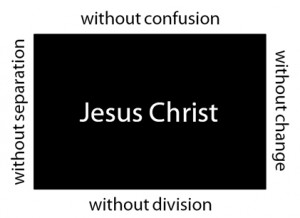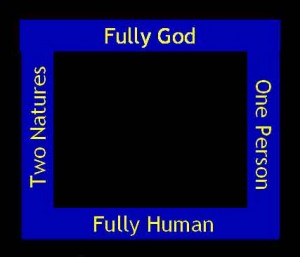 Matthew 24:36 says, “But concerning that day and hour no one knows, not even the angels of heaven, nor the Son, but the Father only.”
Matthew 24:36 says, “But concerning that day and hour no one knows, not even the angels of heaven, nor the Son, but the Father only.”
This seems to be problematic, for if there is something the Son does not know, would this not indicate to us that he is not omniscient (all knowing)? God is all knowing and yet this tells us that there is something Christ did not know. Pastor John, how do we reconcile this verse with the Christian concept of the Deity of Christ?
Thank you for your question. The verse is often raised by those in the cults who openly deny Christ’s Deity. However, a very satisfactory biblical answer to the question emerges when we understand and embrace some good theology.
The Council of Chalcedon (in 451 AD) outlined what theologians refer to as “the doctrine of the Hypostatic Union.” This Council is one of the great Ecumenical Councils accepted by Eastern Orthodox, Roman Catholic, and most Protestant Christian churches. It provides a clear statement as to what orthodox Christians believe concerning the Person of Christ, drawn of course, from the Biblical text. Translated into English it reads:
Therefore, following the holy fathers, we all with one accord teach men to acknowledge one and the same Son, our Lord Jesus Christ, at once complete in Godhead and complete in manhood, truly God and truly man, consisting also of a reasonable soul and body; of one substance with the Father as regards his Godhead, and at the same time of one substance with us as regards his manhood; like us in all respects, apart from sin; as regards his Godhead, begotten of the Father before the ages, but yet as regards his manhood begotten, for us men and for our salvation, of Mary the Virgin, the God-bearer; one and the same Christ, Son, Lord, Only-begotten, recognized in two natures, without confusion, without change, without division, without separation; the distinction of natures being in no way annulled by the union, but rather the characteristics of each nature being preserved and coming together to form one person and subsistence, not as parted or separated into two persons, but one and the same Son and Only-begotten God the Word, Lord Jesus Christ; even as the prophets from earliest times spoke of him, and our Lord Jesus Christ himself taught us, and the creed of the fathers has handed down to us.
 These are intentionally very precise theological statements. It is vitally important we get this right. Heresy awaits all who would veer from this safe biblical position. At Chalcedon it was affirmed that Christ was “perfect/complete in Godhood also perfect/complete in manhood, truly God and truly man.”
These are intentionally very precise theological statements. It is vitally important we get this right. Heresy awaits all who would veer from this safe biblical position. At Chalcedon it was affirmed that Christ was “perfect/complete in Godhood also perfect/complete in manhood, truly God and truly man.”
Christ is one Person with two natures, a human nature and a Divine nature. The full attributes of deity and the full attributes of humanity were both preserved without mixture or confusion. Christ does not have one nature which is a mixture of divine and human. No, He is fully God and fully man – one Person, with two natures. The human nature remains human with all the attributes of human-ness. The Divine nature remains divine and possesses and maintains all of the attributes of divinity.
 In the Incarnation, the second person of the Godhead became a man. Colossians 2:9 says, “For in him the whole fullness of deity dwells bodily.”
In the Incarnation, the second person of the Godhead became a man. Colossians 2:9 says, “For in him the whole fullness of deity dwells bodily.”
Regarding his humanity, Jesus learned about the world around him just as other children would do. Scripture tells us that he grew and became strong (Luke 3:23); there were times when he was thirsty (John 19:28), hungry (Matt 4:2) and was weary (John 4:6). These things show the humanity of Christ rather than His deity. God is never weary, thirsty or hungry. On the other hand, Jesus was also fully God, and, as God, he had infinite knowledge (cf. John 2:25; 16:30; 21:17).
With regards to the text you quote above (Matthew 24:36), I believe it is referring to his human nature. This is similar to other statements about Jesus which could be true of his human nature only, and not of his divine nature. A note in the ESV Study Bible concerning this verse reads, “How Jesus could have limited knowledge and yet know all things is difficult, and much remains a mystery, for nobody else has ever been both God and man. One possibility is that Jesus regularly lived on the basis of his human knowledge but could at any time call to mind anything from his infinite knowledge.” I agree. Though as God, He would know all things, including the future date of His second coming; yet that knowledge was in this case withheld from the human nature.
Having this biblical concept in place (that Christ is one Person with two natures), allows us to see theological error in other areas of doctrine. For instance, it would be incorrect to say that God died on the cross, for the simple reason that it is impossible for God to die. The whole universe would cease to be if that were the case. It would also involve a change in God and one of the attributes of God is immutability (Malachi 3:6) – God does not change.
Let me quote Dr. R. C. Sproul here (from an article appearing on his blog at www.ligonier.org):
The famous hymn of the church “And Can it Be?” contains a line that asks a very poignant question : “How can it be that thou, my God, shouldst die for me?” Is it accurate to say that God died on the cross?
This kind of expression is popular in hymnody and in grassroots conversation. So although I have this scruple about the hymn and it bothers me that the expression is there, I think I understand it, and there’s a way to give an indulgence for it.
We believe that Jesus Christ was God incarnate. We also believe that Jesus Christ died on the cross. If we say that God died on the cross, and if by that we mean that the divine nature perished, we have stepped over the edge into serious heresy. In fact, two such heresies related to this problem arose in the early centuries of the church: theopassianism and patripassianism. The first of these, theopassianism, teaches that God Himself suffered death on the cross. Patripassianism indicates that the Father suffered vicariously through the suffering of His Son. Both of these heresies were roundly rejected by the church for the very reason that they categorically deny the very character and nature of God, including His immutability. There is no change in the substantive nature or character of God at any time.
God not only created the universe, He sustains it by the very power of His being. As Paul said, “In Him we live and move and have our being” (Acts 17:28). If the being of God ceased for one second, the universe would disappear. It would pass out of existence, because nothing can exist apart from the sustaining power of God. If God dies, everything dies with Him. Obviously, then, God could not have perished on the cross.
Some say, “It was the second person of the Trinity Who died.” That would be a mutation within the very being of God, because when we look at the Trinity we say that the three are one in essence, and that though there are personal distinctions among the persons of the Godhead, those distinctions are not essential in the sense that they are differences in being. Death is something that would involve a change in one’s being.
We should shrink in horror from the idea that God actually died on the cross. The atonement was made by the human nature of Christ. Somehow people tend to think that this lessens the dignity or the value of the substitutionary act, as if we were somehow implicitly denying the deity of Christ. God forbid. It’s the God-man Who dies, but death is something that is experienced only by the human nature, because the divine nature isn’t capable of experiencing death.
I believe Sproul is correct and understanding this gives us the basis upon which we can address other issues. This would include the unbiblical doctrine of the Roman Catholic Church concerning transubstantiation. Here the claim made by Rome is that upon the utterance of the ordained priest, the bread and wine become the literally blood, body and divinity of Christ. However, one of the attributes of humanity is that a physical body can only be in one place at a time.
Lets think this through – if Christ is fully present bodily on the altar of a Roman Catholic Church on 7th Avenue, it cannot possibly be present (at the same time) on the altar at the Roman Catholic Church on 3rd Street, while at the same time, also be fully present on church altars in Hungary, Australia, Poland, Ukraine and Italy. No, a physical body can only be in one place at a time or else it is not fully human.
The answer Rome gives concerning this is that because Christ is Divine, He can make His body present in many places at the same time, but such a concept confuses deity and humanity, making his body a deified body. No, Christ as a man possesses a human physical body which can only be in one place at a time.
I believe the biblical concept is that Christ is spiritually present (in every congregation) in a very real way at the Lord’s Supper, while at the same time, physically speaking, He remains seated on His throne in heaven at the Father’s right hand. His spiritual presence is a real presence and is a manifestation of Jesus’ divine nature, allowing Him to fully commune with His people wherever they are gathered.
